Flaxseed Oil
2 in stock
- Oil lowers cholesterol and protects against heart disease and control high blood pressure.
- Counters inflammation associated with gout, lupus and fibrocystic breasts.
- Controls constipation, hemorrhoids, diverticular disorders and gallstones
>>>Read More
22,675CFA
2 in stock
Detailed Product Description / Supplement Facts
Natural source of Omega3 & 6
Benefits:
- Flaxseed oil lowers cholesterol and protects against heart disease and control high blood pressure.
- Flaxseed oil counters inflammation associated with gout, lupus and fibrocystic breasts.
- Flaxseed oil controls constipation, hemorrhoids, diverticular disorders and gallstones
- Flaxseed oil treats acne, eczema, psoriasis, sunburn and rosacea
- Flaxseed oil promotes healthy hair and nails
- Flaxseed oil minimizes nerve damage that causes numbness and tingling as well as other disorders.
- Flaxseed oil reduces cancer risk and guard against the effects of aging
- Flaxseed oil treats menopausal symptoms, menstrual cramps, female infertility and endometriosis.
- Flaxseed oil fights prostate problems, male infertility and impotence.
- Flaxseed oil aids in preventing certain cancers and combating specific bacteria, fungi, and viruses, including those that cause cold sores and shingles
- Flaxseed oil reduces inflammation and promotes wound healing in burn victims
- Flaxseed oil reduces tenderness in joints and decreases morning stiffness in arthritis patients
- Flaxseed oil decreases inflammation and improves lung function in adults with asthma.
Flaxseed Oil Product Overview
A source of fiber for linen fabric since ancient times, the slender flax plant (Linum usitatissimum) also boasts a long history as a healing herb. First cultivated in Europe, the plant’s brown seeds were regularly used to prepare balms for inflamed skin and healing slurries for constipation. Today, flaxseeds–also called linseeds–are best known for the therapeutic oil that is derived by pressing them. Rich in essential fatty acids, or EFAs, flaxseed oil has earned a solid reputation for treating a range of ailments, from heart disease to lupus.
Health Benefits
The essential fatty acids in flaxseed oil are its key healing components. EFAs are particularly valuable because the body needs them to function properly, but can’t manufacture them on its own. Essential fatty acids work throughout the body to protect cell membranes, keeping them efficient at admitting healthy substances while barring damaging ones.
One of the EFAs in flaxseed oil–alpha-linolenic acid–is known as an omega-3 fatty acid. Like the omega-3s found in fish, it appears to reduce the risk of heart disease and numerous other ailments. Flaxseed oil is an excellent source of omega-3s: Just 1 teaspoon contains about 2.5 grams, equivalent to more than twice the amount most Americans get through their diets. Flaxseeds also contain omega-6 fatty acids in the form of linoleic acid; omega-6s are the same healthy fats found in vegetable oils.
Lignans: Flaxseeds are a rich source of lignans, substances that appear to positively affect hormone-related problems. Lignans may also be useful in preventing certain cancers and combating specific bacteria, fungi, and viruses, including those that cause cold sores and shingles. When taken in ground form, flaxseeds provide an extra fiber boost, easing the passage of stools and benefiting the digestive tract in multiple ways.
Specifically, flaxseed oil (and flaxseeds) helps to:
Lower cholesterol, protect against heart disease and control high blood pressure. Several studies indicate that flaxseed oil, as well as ground flaxseeds, can lower cholesterol, thereby significantly reducing the risk of heart disease. Taking flaxseed oil may also protect against angina (chest pain) and high blood pressure. In addition, a five-year study done recently at Boston’s Simmons College found that flaxseed oil might be useful in preventing a second heart attack. It may also help prevent elevated blood pressure by inhibiting inflammatory reactions that cause artery-hardening plaque and poor circulation.
Counter inflammation associated with gout, lupus and fibrocystic breasts. Omega-3 fatty acids appear to limit the inflammatory reaction associated with these conditions. In cases of lupus, flaxseed oil not only reduces inflammation in the joints, skin and kidneys, but also lowers cholesterol levels that may be elevated by the disease. Taking flaxseed oil for gout may lessen the often sudden and severe joint pain or swelling that is a symptom of this condition. In addition, the ability of omega-3 fatty acids to boost the absorption of iodine–a mineral often found in low levels in women suffering from fibrocystic breasts–makes flaxseed oil potentially valuable for treating this often painful condition.
Control constipation, hemorrhoids, diverticular disorders and gallstones. Because they are high in dietary fiber, ground flaxseeds can help ease the passage of stools and thus relieve constipation, hemorrhoids and diverticular disease. In those with diverticular disease, flaxseeds may also keep intestinal pouches free of waste and thus keep potential infection at bay. Taken for inflammatory bowel disease, flaxseed oil can help to calm inflammation and repair any intestinal tract damage. In addition, the oil may prevent painful gallstones from developing and even dissolve existing stones.
Treat acne, eczema, psoriasis, sunburn and rosacea. The essential fatty acids in flaxseed oil are largely responsible for its skin-healing powers. Red, itchy patches of eczema, psoriasis and rosacea often respond to the EFA’s anti-inflammatory actions and overall skin-soothing properties. Sunburned skin may build sebum that clogs pores.
Promote healthy hair and nails. The abundant omega-3 fatty acids in flaxseed oil have been shown to contribute to healthy hair growth (in fact, low levels of these acids may cause dry and lackluster locks). Hair problems exacerbated by psoriasis or eczema of the scalp may respond to the skin-revitalizing and anti-inflammatory actions of flaxseed oil as well. Similarly, the oil’s EFAs work to nourish dry or brittle nails, stopping them from cracking or splitting.
Minimize nerve damage that causes numbness and tingling as well as other disorders. The EFAs in flaxseed oil assist in the transmission of nerve impulses, making the oil potentially valuable in treating conditions of numbness and tingling. The oil’s nerve-nourishing actions may also help in the treatment of Parkinson’s disease, a degenerative disorder of the nervous system, and protect against the nerve damage associated with diabetes and multiple sclerosis.
Reduce cancer risk and guard against the effects of aging. The lignans in flaxseed oil appear to play a role in protecting against breast, colon, prostate, and perhaps skin cancer. Although further studies are needed, research undertaken at the University of Toronto indicates that women with breast cancer, regardless of the degree of cancer invasiveness, may benefit from treatment with flaxseed oil. Interestingly, the oil’s lignans may protect against various effects of aging as well.
Treat menopausal symptoms, menstrual cramps, female infertility and endometriosis. Because the hormone-balancing lignans and plant estrogens (phytoestrogens) in flaxseed oil help stabilize a woman’s estrogen-progesterone ratio, they can have beneficial effects on the menstrual cycle, and relieve the hot flashes of perimenopause and menopause. Flaxseed oil may also improve uterine function and thus treat fertility problems. In addition, the essential fatty acids in flaxseed oil have been shown to block production of prostaglandins, hormone like substances that, when released in excess amounts during menstruation, can cause the heavy bleeding associated with endometriosis.
Fight prostate problems, male infertility and impotence. The EFAs in flaxseed oil may help to prevent swelling and inflammation of the prostate, the small gland located below the bladder in males that tends to enlarge with age. Symptoms of such enlargement, such as urgency to urinate, may lessen as a result. The EFAs also play a role in keeping sperm healthy, which may be of value in treating male infertility, and they can improve blood flow to the penis, a boon for those suffering from impotence.
Arthritis. Several studies suggest that omega-3 fatty acid supplements reduce tenderness in joints, decrease morning stiffness, and allow for a reduction in the amount of medication needed for people with rheumatoid arthritis and, probably, osteoarthritis as well.
Depression. People who do not get enough omega-3 fatty acids or do not maintain a healthy balance of omega-3 to omega-6 fatty acids in their diet may be at an increased risk for depression. The omega-3 fatty acids are important components of nerve cell membranes. They help nerve cells communicate with each other, which is an essential step in maintaining good mental health.
Burns. Essential fatty acids have been used to reduce inflammation and promote wound healing in burn victims. Animal research indicates that omega-3 fatty acids help promote a healthy balance of proteins in the body — protein balance is important for recovery after sustaining a burn. Further research is necessary to determine if this may apply to people as well.
Asthma. Preliminary research suggests that omega-3 fatty acid supplements may decrease inflammation and improve lung function in adults with asthma.
Others. Although further research is needed, preliminary evidence suggests that omega-3 fatty acids may also prove helpful in protecting against certain infections and treating a variety of conditions including ulcers, migraine headaches, pre-term labor, emphysema, glaucoma, Lyme disease, lupus, and panic attacks.
POSSIBLE INTERRACTIONS
If you are currently being treated with any of the following medications, you should not use flaxseed oil without first talking to your healthcare provider.
Blood-thinning Medications
Omega-3 fatty acids may increase the blood-thinning effects of warfarin, aspirin, or other blood-thinning medications. While the combination of aspirin and omega-3 fatty acids may actually be helpful under certain circumstances (such as heart disease), these medications should only be taken together under the guidance and supervision of your healthcare provider.
Cholesterol-lowering Medications. Following certain nutritional guidelines, including increasing the amount of omega-3 fatty acids in your diet and reducing the omega-6 to omega-3 ratio, may allow a group of cholesterol lowering medications known as “statins” (such as atorvastatin, lovastatin, and simvastatin) to work more effectively.
Cyclosporine. Taking omega-3 fatty acids during cyclosporine therapy may reduce toxic side effects (such as high blood pressure and kidney damage) associated with this medication in transplant patients.
Flaxseed may slow down the absorption of oral medications or other nutrients if taken at the same time. Try to avoid taking flaxseed at the same time as medications and other supplements.
Precaution: People with either diabetes or schizophrenia may lack the ability to convert ALA to EPA and DHA, the forms more readily used in the body. Therefore, those with either condition should obtain their omega-3 fatty acids from NG4L Omega 3 EPA and DHA or NG4L Cod Liver Oil.
Although studies have found that regular consumption of fish (which includes the omega-3 fatty acids EPA and DHA) may reduce the risk of macular degeneration, a recent study including two large groups of men and women found that diets rich in ALA may substantially increase the risk of this disease. More research is needed in this area. Until this information becomes available, it is best for people with macular degeneration to obtain omega-3 fatty acids from NG4L Omega 3 EPA and DHA or NG4L Cod Liver Oil.
Similar to macular degeneration, fish and fish oil may protect against prostate cancer, but ALA may be associated with increased risk of prostate cancer in men. More research in this area is needed.
Supplement Facts | ||
Serving Size: One (1) softgel | ||
Amount per serving | % Daily Value | |
Flaxseed Oil | 1000 mg | * |
*Dailly Value not established | ||
Other ingredients: Gelatin, glycerin, purified water | ||
Directions: Adults: 1 softgel three times daily preferably with meals
| Weight | 1661 g |
|---|

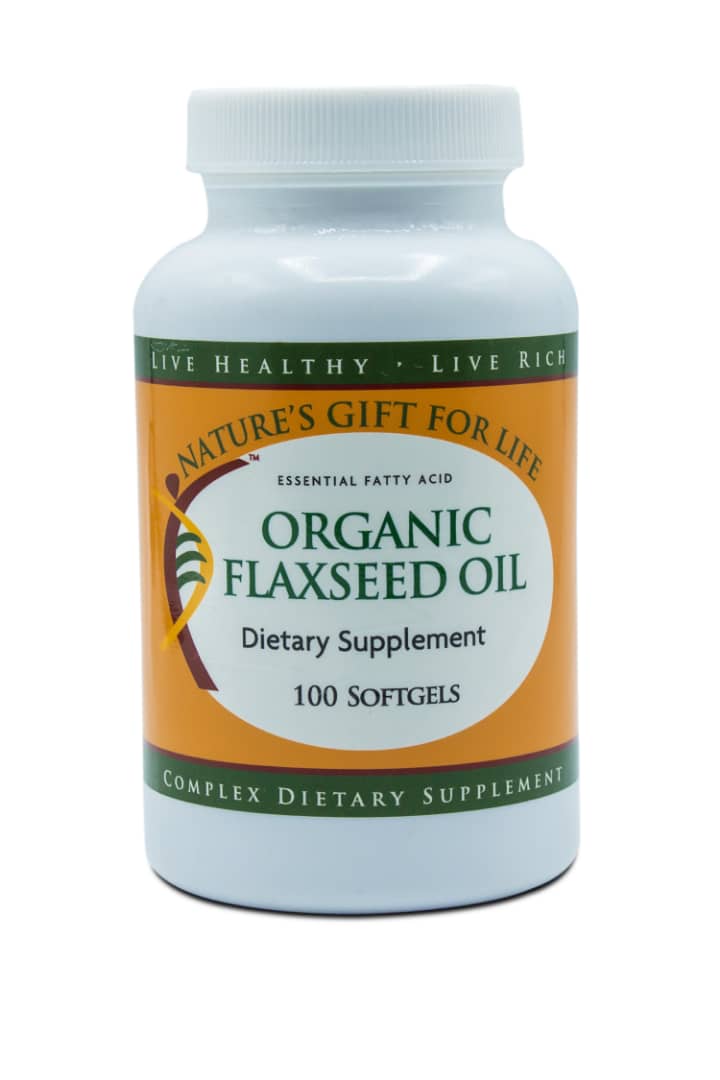
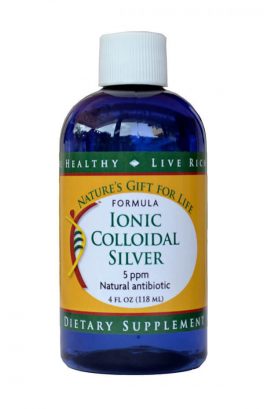
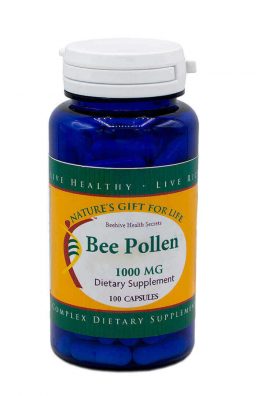
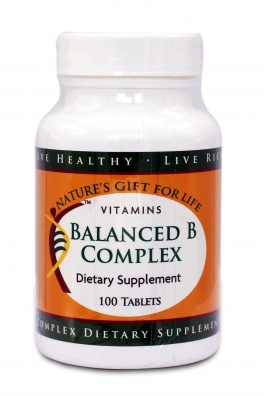
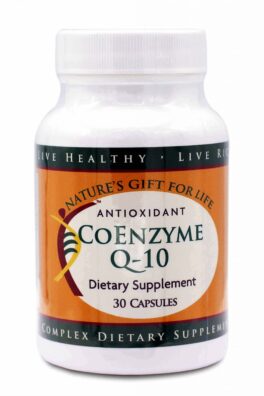
There are no reviews yet.